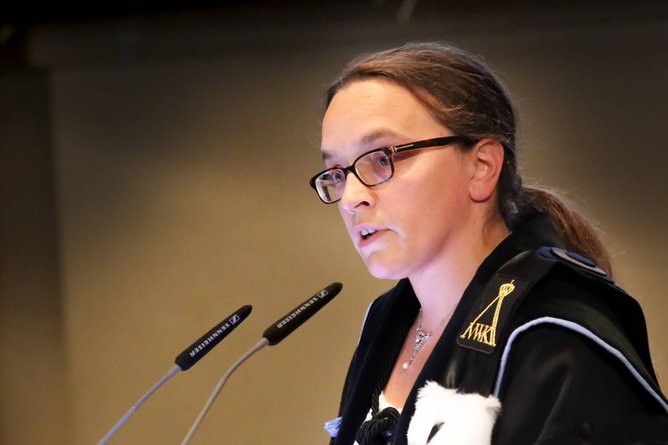Professor Veronique Van Speybroeck receives prestigious Francqui Prize
Professor Veronique Van Speybroeck (UGent) has been awarded the Francqui Prize, Belgium's most prestigious science award, often referred to as the "Belgian Nobel Prize." Professor Van Speybroeck is also one of the leading investigators in the Moonshot project Moonrise.

The Francqui prize alternates annually among scientists in the exact sciences, humanities, and biological and medical sciences. Van Speybroeck, a physicist, is a leading international researcher in the field of catalysis. “Thanks to Professor Veronique Van Speybroeck’s research on computational modeling of complex catalysis processes in chemistry, a more profound understanding of these processes is obtained”, says Catalisti’s Martijn Roosen. “This is key to optimize and develop more effective and sustainable chemical processes. This recognition demonstrates her pioneering work in catalysis research, which is highly important for enabling a more sustainable chemical industry.”
Van Speybroeck's research aims to develop new and improved catalysts that can, for instance, capture CO2 and convert it into useful chemicals or transform plastic waste into diesel fuel. Her contributions to computer modeling of catalysis are crucial for developing environmentally friendly chemical processes. Catalysis is vital in various industries, from manufacturing detergents to purifying air and water, and transforming crude oil into useful products.
Traditionally, finding effective catalysts has been a trial-and-error process. However, Van Speybroeck's precise method involves mapping the behavior of catalysts at the nanoscale, predicting which materials can function as catalysts and determining the optimal conditions for their use. This method considers numerous factors, such as temperature, humidity, and the combination of chemical elements, all analyzed through sophisticated quantum simulations.
Her groundbreaking work not only enhances our understanding of catalysis but also has significant implications for sustainable technology and environmental conservation. Van Speybroeck’s achievements demonstrate her leadership in sustainable technology research and her contributions to creating more eco-friendly chemical building blocks for society.
About Moonrise
Professor Van Speycbroeck is one of the lead investigators in the Moonrise project. The project seeks to make the production of base chemicals like ethylene (C2) and propylene (C3) more sustainable by developing innovative membranes to separate and purify them in an energy-efficient way. Light olefins, such as ethylene and propylene, are vital building blocks in the chemical industry. Today, most ethylene and propylene is produced through steam cracking of hydrocarbons, both challenging and energy-intensive. In the process, substantial amounts of CO2 are emitted. To reduce these CO2 emissions, Moonrise aims to replace cryogenic separation of C2 and C3 mixtures by membrane separations. This type of separation offers significant advantages, as it has a low energy consumption, a small footprint, and can operate continuously.
The petrochemical sector is the largest 'energy’ consumer, representing roughly 10% of the global demand (International Energy Agency, 2018). Olefin purification accounts for 0,3% of the global energy use (Stephenson, 2019). Any improvement in efficiency will have a large impact on energy consumption.